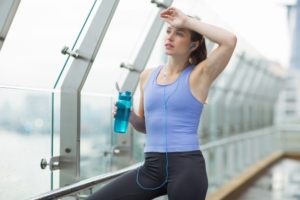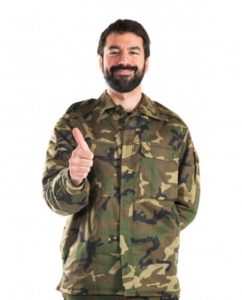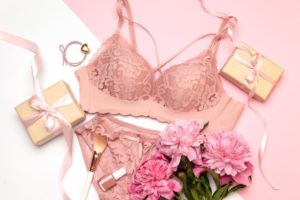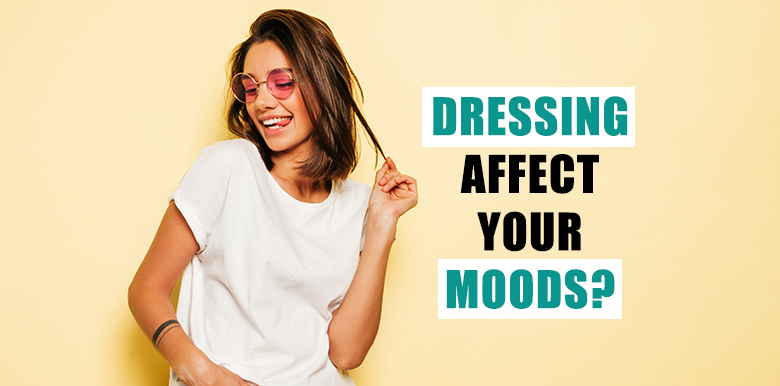We take a little extra effort to look nice for occasions. But for the most, people remain conflicted between wanting to dress up and feeling guilty about taking the time to focus on clothes. Science now suggests that how we dress may just be the difference between giving ourselves the extra edge in our professional and personal lives. And yes, that applies to men too.
We hear sayings like “dress for the job you want; not the job you have” and “look good, feel good” all the time. Most people don’t really believe in them, but we try to match our attire to the occasion nevertheless. The good news is that research into the impact of clothes on behavior now suggests that there may actually be a grain of truth in these sayings. Science says that the clothes we wear affect our behavior, attitudes, personality, mood, confidence, and even the way we interact with others. This is “Enclothed Cognition“.
The term Enclothed Cognition is used to describe the effect that our clothes seem to have on various psychological processes like emotions, self evaluations, attitudes, and interpersonal interactions. Clothes affect our behavior and our moods because of the symbolic meaning that we (as a society) ascribe to different types of attire.
We consider some clothes to be powerful, some to be fun, and so on. We even evaluate people whom we have just met based on their clothes and the occasion. It would seem that we also evaluate ourselves and our roles based on what we are wearing at a particular time; because of the way they make you feel. This means that the experience of wearing something subtly affects our attitudes and our choice of behavior.
Suited up = power up

Suit
There’s a reason tailored jackets are associated with being ‘dressed for success’. It seems that wearing formal office wear and structured clothes puts us in the right frame of mind to conduct business. Wearing power clothing makes us more feel more confident [possibly because we call it power clothing]; and even increases hormones needed for displaying dominance. This in turn helps us become better negotiators and abstract thinkers.
Casual Friday

Casual
While a good suit works wonders for our performance in the boardroom; wearing formal wear isn’t a great idea when we want to socialize. Studies have found that people tend to be less open and find it more difficult to relax when they wear formal clothes.
On the other hand, a casual and relaxed dress code at work helps us become more friendly and creative. These findings bolster the idea of wearing business casuals on a Friday; since colleagues are most likely to take out time to socialize and let their hair down on the last work day of the week. I mean, who wants to hang out with the squares in their suits?
The psychology of gym clothes

Gym clothes
Not motivated enough to exercise daily? Wear some of your gym clothes, or at least carry them with you. Wearing gym clothes / active wear makes it more likely that we will actually exercise. This may happen because wearing our workout gear acts as a reminder to make healthy choices. And for many, having the clothes on eliminates the step of ‘dressing for exercise’; and reduces one of our excuses.
Uniform thinking

Uniform
Any kind of clothing that is associated with a specific role activates all our knowledge and expectations about how people from that profession should behave. For example, wearing uniforms and coats can make people more conscious of their duties and encourage them to pay more attention to their jobs. Just wearing a lab-coat during an experiment encourages people to pay more attention (since lab-coats represent serious, attentive professions like scientists and doctors) and make fewer mistakes.
And this is not just for the adults. School children in Kenya attended school more and performed better when they were given uniforms to wear – perhaps because the uniforms made school work that much more real and valuable to these children and their parents.
Uppers and downers

Uppers and downers
Feeling low / cranky / upset / sad? While our mental state most definitely affects the way we dress; the reverse may also hold true. What we wear could affect how we cope days when we are depressed, anxious and stressed. Research says the quickest little fix for a bad day is to wear brightly colored clothes. Cheerful colors work as a mini pick-me-up; and thus boosting our mood and energy. Also, we associate bright colors with happiness, sunny days, and carefree times (like the summer vacations when we were kids).
On the other hand, we associate deep and dull colors with low energy, being tired and a more somber mood. So the next time you feel like donning a dark hoodie to hide a bad day; reach out for the bright pullover instead! It may just make you feel a little happier.
Hidden secrets

Hidden secrets
Amazingly even our underwear affects the way we feel about ourselves. Hidden clothes like our socks and underwear can exert a powerful influence on our self-perception and confidence levels. Wearing something we perceive as sexy can make us feel more self assured, more powerful and more confident.
To improve self image, even copying someone’s style may be a good idea. Research shows that when we emulate the dress code of people we consider smart and powerful, we feel infused with these qualities as well. That’s certainly an argument for owning clothes that bring out the best in us.
